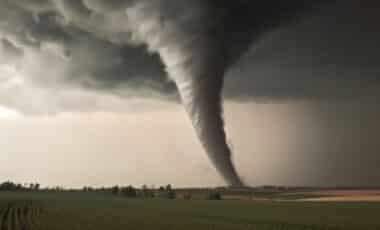A dangerous heatwave is sweeping across the central United States this week, putting millions of residents at risk as temperatures are expected to surge well above normal. Forecasters are warning that temperatures could rise by as much as 20°F above average, with certain areas experiencing extreme heat that could exceed 100°F. The heatwave is expected to affect a large portion of the U.S., including regions from Colorado to Indiana, with cities like Denver and St. Louis bracing for some of the hottest conditions of the year.
The National Weather Service and AccuWeather have issued warnings for multiple states, urging people to take precautions to protect themselves from the severe heat. This intense weather pattern, combined with high humidity, is expected to make the heat feel even more oppressive. Experts are particularly concerned about vulnerable groups such as outdoor workers, the elderly, and those without air conditioning.
Extreme Heat and Humidity Make Conditions Hazardous
The heatwave is set to peak from Friday through Sunday, although some areas are already experiencing the rising temperatures. Meteorologists warn that the high humidity will intensify the heat, making it feel even hotter than the actual temperature. This combination of extreme heat and humidity creates a dangerous environment, especially for those who are not able to stay in air-conditioned spaces.
Chad Merrill, a meteorologist with AccuWeather, emphasized the importance of staying in air-conditioned environments as much as possible. For individuals without air conditioning, homes can become unbearably hot, especially between 9 and 11 p.m. when temperatures often remain high. Merrill suggests that people without air conditioning should consider staying overnight in cooler places to avoid the health risks associated with prolonged exposure to high heat.
Health Risks and Precautions for Vulnerable Groups
Experts are particularly concerned about vulnerable populations, including outdoor workers, the elderly, and people who do not have access to air conditioning. While anyone can be affected by extreme heat, these groups are at a higher risk of heat exhaustion and heat stroke. Symptoms to watch for include dizziness, nausea, headache, and rapid heartbeat. If any of these symptoms are experienced, it’s crucial to seek a cooler environment immediately.
The National Weather Service is urging individuals to monitor local heat advisories and take necessary precautions. While heat warnings have not yet been issued for all regions, the rapidly rising temperatures may trigger additional alerts in the coming days. Experts also advise people to stay hydrated by drinking plenty of fluids and to avoid strenuous physical activity during the hottest parts of the day.
Dangerous heat in portions of the country today will evolve as the week progresses, culminating in potentially Extreme heat impacts from the central plains by Saturday, then into the Midwest and East Coast late this weekend and into early next work week.
— National Weather Service (@NWS) June 17, 2025
Check… pic.twitter.com/SEsePLzNio
Rising Temperatures and Wildfire Risks in The Southwest
The heatwave is not only a concern for the central U.S.; parts of the Southwest have already seen similar extreme temperatures this year. These areas, which include states like California, Arizona, and Nevada, have experienced heat warnings and have been under heightened threat from wildfires. The combination of extreme temperatures, dry conditions, and high winds has created an environment ripe for fire hazards.
California, which has already experienced devastating wildfires this year, is expected to face even more challenges as summer progresses. The state is still recovering from wildfires that killed at least 30 people and destroyed thousands of homes in January. Experts have warned that the heatwave could exacerbate the fire risk, as dry vegetation and high temperatures make the region more vulnerable to wildfires. The wildfire season is expected to be more intense than usual, with officials keeping a close eye on fire activity.
Safety Tips for Dealing with Extreme Heat
To stay safe during the heatwave, individuals are encouraged to stay indoors during the hottest parts of the day and to avoid prolonged exposure to the sun. For those without air conditioning, finding a cooler place to stay, such as a public building or a friend’s home, can help reduce the risk of heat-related illnesses. In addition, it is essential to drink plenty of fluids, particularly water, and to limit physical exertion, especially during the peak heat hours.
AccuWeather’s Chad Merrill also advised that it’s important to check on elderly neighbors or family members who may be particularly vulnerable to the heat. Many areas have already issued heat warnings, and the situation may evolve in the coming days, so it’s critical to stay informed about local weather conditions and advisories.









